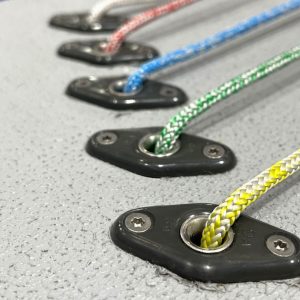If you work out first thing in the morning, chances are, at one time or another, you’ve been on the sleepy side and had to drag yourself out of bed with a little extra pep talk and motivation in your head.
Ask any person, who regularly trains in the morning, what their pre-workout routine is, and more than likely, you hear one of the more popular responses:
Drink coffee.

Many claim it gives them that ‘extra edge’ for their grueling workouts; But is it really all it’s cracked up to be?
Several research articles and studies in health and fitness publications over the past several years have claimed it’s actually a great enhancement to any workout.
According to a study published in the Journal of Applied Physiology, researchers found that drinking a couple cups of coffee before a workout can actually make it feel more enjoyable.
The study evaluated the differences that 14 total participants experienced when they took caffeine (equal to two 8-ounce cups of coffee or 4 cups of black tea) and worked out on a stationary bike vs. no caffeine and a workout on a stationary bike. The findings? When caffeinated, the participants reported the ride as way easier than it was without the stimulant.
Health Magazine reported on another study published in the International Journal of Sport Nutrition and Exercise Metabolism, coffee enhanced fat-burning in exercise participants. Researchers concluded “trained athletes who took in caffeine pre-exercise burned about 15 percent more calories for three hours post-exercise, compared to those who ingested a placebo.
[The dose that triggered the effect was 4.5 mg of caffeine per kilogram of body weight. For 150-pound woman (68 kg), that’s roughly 300 mg of caffeine, the amount in about 12 ounces of brewed coffee, a quantity you may already be sipping each morning].” Still, one more study found coffee before a workout increases an athlete’s ability to draw extra energy and enhance their performance, particularly during endurance workouts.
In addition to all this research, we also hear about the popularity of the highly-touted Bulletproof coffee and diet, claiming if we drink a quality cup of low-toxin coffee beans + MCT Oil + Grass-fed butter, our energy and superpowers will soar through the roof. The burst of caffeine and specific fats is supposedly the ultimate recipe to boost your brain and brawn, fuel workouts, and even shrink waistlines.
So coffee MUST be the pre-workout drink of choice, right?

While coffee is actually a very natural substance (granted you are not adding artificial sweeteners, sugar or processed creams and milks), it is one of those ‘gray’ areas as to whether or not athletes really do benefit from the Cup of Joe before a morning workout.
Much like our training methodology, caffeine consumption—and the amount of consumption—is completely individualized, depending on the client.
Take a few different scenarios into consideration here:
Trainee #1: Daily Exerciser. 40-year-old male. Training for life.
Works out: 6:30 a.m. every day, at least 5 days per week.
Primary goals: Continue to gain strength and fitness (for life).
Drinks: Coffee is a ‘ritual’ for him. 1 cup of black coffee on an empty stomach, along with water before his workouts every morning while he reads the paper. Coffee is a simply a part of a routine and makes him feel more ‘awake’ on his early mornings. Somewhat would say he is ‘dependent’ on wanting it, because he likes it, but could also easily go without it if not available. No more coffee needed later on in the day.
The Verdict? Neither here nor there. If he wants the coffee, drink the coffee. Not directly impacting from his gains in the gym—positively or negatively. And he is not addicted to the stimulus the caffeine gives him, as he is able to abstain if needed.
Trainee #2: Daily Grinder. 28-year-old male. Training for sport, competition, gains.
Works out: 5 a.m. every morning; trains at least 6 days per week.
Primary goals: Build muscle and strength; Make top 20 in the 2016 CrossFit Open
Drinks: 2 cups of black coffee + Pre-workout supplements + Protein powder, 1 scoop every morning before his workouts every morning. Hits a wall around 10 a.m. in his mid-mornings, and typically reaches for another cup of coffee or two at that time. And some days, on his two-a-days, he has more pre-workout supplements prior to his afternoon sessions.
The Verdict? Running off adrenaline. This kid is dependent on caffeine—and has become highly dependent on needing stimulants to get him going. Caffeine stimulation + heightened cortisol (adrenaline) from both the coffee and his tough workouts=not ideal for his body, his hormones and his long-term gains (read more below). However, in the short-term, the overstimulation from caffeine and adrenaline actually seemingly keep him going, and fuel the fire to grind it out in the gym day in and day out.
Trainee #3: Recreational Athlete. 32-year-old female. Training for local competitions; fitness for life; the ability to keep up with her 2 and 4-year-old children.
Works out: 8:30 a.m. every morning; trains at least 4-5 days per week.
Primary goals: Be healthy and improve her fitness for her own gratification and joy of training.
Drinks: 2 cups of coffee + Splenda + almond milk every morning with her breakfast of eggs and oats. Coffee is a ritual she’s been doing since her college days and has no idea what a morning is like without it. Throughout the rest of the day, she is also a recreational coffee drinker. May not need it later, but if she meets up with a friend at a coffee shop or drives by a Starbucks, a latte is never past her.
The Verdict? Walking the line. Primarily the artificial sweeteners are not her friend for a host of digestive health and general wellness reasons (linked with brain fog, nausea, cellular damage, metabolic dysfunction). On the coffee front, if she could cut back to one cup of Joe with her breakfast, and let herself become less dependent on needing the stimulant to get her going, she may be able to actually tap into more innate and raw potential in the gym, as opposed to hormonally, running (and depending) on coffee as part of her pre-workout routine.
In essence, for all of these examples, the verdict of whether coffee is really beneficial before a workout all comes down to a matter of your hormones and stress levels.
Since coffee is a stimulant, too much of it, and your system goes haywire.
This, coupled with the additional stress of a workout on your body, day in and day out, can yield some not-so-positive effects.
Here’s the main problem:
- Coffee stimulates the adrenal glands, which means every time you drink coffee (yes even decaf coffee has some caffeine in it), you’re activating the body’s fight-or-flight response, releasing adrenaline and raising your cortisol levels (stress hormones).
- Consequently, instead of JUST releasing adrenaline so the body can react to a natural true stressor (a workout, running from a bear, escaping a fire), the adrenals are forced to release adrenaline at a non-natural time, simply in response to your coffee consumption.
With repetitive stress, your adrenal glands start to burn out from overuse, which can lead to a host of problems, including:
- adrenal insufficiency;
- out of whack circadian rhythms;
- fatigue
- ‘wired and tired’ feelings at night’;
- weight loss or weight gain;
- impaired ability to recover fully from workouts;
- mood shifts;
- low libido and plateaus in your physical training—just to name a few.
So to drink or not to drink?
That answer is completely up to you.
And it really all comes down to: Are you dependent on it or not?
If you only have the occasional cup of coffee, your adrenals will be able to react quickly and capably to this kind of stimulation. However, if you are consuming several cups of coffee each day, your body begins to have a weakened reaction to that caffeine (i.e. you need MORE to get that ‘edge’ or alertness). Some say their ‘tolerance’ has increased, or meet that need by upping the coffee consumption, but the truth is actually quite opposite.
Depending on how much caffeine you consume, it definitely can make you feel as if you have more energy, especially within the first couple of hours after consumption. However, once the effects of the caffeine have worn off, you’ll actually feel more tired than you did before you drank it.
If you’ve become dependent on caffeine/coffee, you may need to re-evaluate why that is.
Ask yourself: Does caffeine really give you an energy boost? Or is it actually leading to a more unhealthy stress response?
Ultimately, if you really want to see what your body is capable of (gains, recovery), but are also overly dependent on caffeine and stimulants to fuel your already-tough (and stressful) workouts: you may be blunting your optimal potential.
A couple thoughts to help you wean off?
- One a Day. Consider cutting back to 1 cup of quality coffee per day—you choose when that is;
- Water. Up your water intake—a natural energy booster. Especially first thing in the mornings. CHUG water (at least 16-20 ounces) in the mornings before you even so much think about drinking coffee. In total, drink at least half your body weight in ounces + 12 oz. for every 8 oz. coffee; plus additional around workouts on training days.
- BEST Pre-Workout Choices. In fact, BEFORE you even so much as drink some coffee before a workout, it is IMPERATIVE you consume water. A second line of defense? Protein=a much better fuel source pre (and post) workout over coffee any day. Fortunately, for you coffee lovers, there are some coffee flavored protein powders out there. Lastly, if coffee is still in the mix, be in touch with timing consumption appropriately (after you’ve had at least 16 oz. of water) and depending on your tolerance, about 30-minutes before hitting the gym to allow time for the stimulant to fully kick in.
- Digestive Dysfunction. Consider your digestion and the disruption coffee can cause to your GI system. You eat food and drink water to fuel your workouts right? However, coffee is a diuretic, meaning it causes excretion of fluid through the kidneys, which may lead to dehydration. Dehydration due to excess coffee may produce hard stools difficult to pass which may lead to constipation, in turn leading to a host of GI problems and discomfort that can impede your ability to feed your machine appropriately. In addition, when you drink coffee your stomach produces large amounts of Hydrochloric (HCI) acid. This overproduction of HCl is particularly pronounced if you drink a cup of coffee on an empty stomach, making first thing in the morning one of the worst times to kick back some coffee. Do this for long enough and your body’s ability to produce its own HCl may be reduced. When there is a shortage of hydrochloric acid for digestion, gas, bloating, indigestion, constipation and leaky gut can happen. Knowing this alone can help you with making decisions around how much coffee to consume, if at all.
- The Replacements. Try Teecino—an herbal tea flavored like coffee (if coffee is more of a ritual for you)
- Address Deficiencies. Speak with a nutrition therapist about amino acid supplements that can help give you a natural boost of energy if you’ve become dependent on caffiene. Often time, caffeine addicts are deficient in: L-Gluatmine, Tyrosine, Tryptophan, and/or Phenylalanine.
- Just Do It. Quit cold turkey for 21 days; give yourself an ‘end’ timeline to remind yourself you can do anything for a short amount of time. By the end of 21 days, you may very well find that you don’t need coffee like you once did
Original blog post from OPEX Fitness




